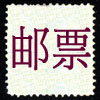
|
Chinese Drug Slang
Featured excerpts from Niubi!
v1.1 - Mar 10, 2011
Slang terms originally published in Niubi!
Chao E. "Behaving Badly: Drugs". In Niubi! The Real Chinese You Were Never Taught in School, 132-140. Plume, 2009.
Introduction
The use of psychoactives is fairly widespread in China, and to some degree tolerated as a result of the custom of guanxi. In cities, some use primarily seems to happen in bars, clubs and KTVs (karaoke bars with private rooms for patrons). In certain less urban areas cannabis use is deeply ingrained in the culture and therefore not addressed by the government.The list that follows features slang terms covered in the "Drugs" subsection of Chao's book. The descriptions reflect some of the nuances in Chinese vocabulary that relate to psychoactives. The original text includes pinyin (standard romanization of Mandarin Chinese characters)1 for each term as well as the author's own phonetic pronunciation that approximates equivalent English sounds.
吸毒
To take drugs. Literally "suck poison."喝酒
To drink alcohol.喝多
Drunk hung over. Literally "drink much."药物滥用 or 毒品滥用
Substance abuse. Literally "drug excessive use." The first term can mean any type of drugs, including medicine, and the second term specifically means illegal drugs, but both are frequently used. You can insert the name of a drug in front of 滥用 to indicate abuse of that specific drug.瘾君子
Drug addict. Literally "addicted gentleman" or "addicted nobleperson," because once upon a time only wealthy people could afford drugs, and opium was considered a status symbol.抽 [chōu]
Smoke (as in smoking marijuana, opium, heroin, etc.). 吸 [xī], literally "inhale," can be used too, though it is less common than chōu.用 [yòng]
Use. Can be inserted in front of any drug name to indicate use of that drug. For heroin or opium, however, it's more common to say yòng than xī or chōu, even though they can be smoked.逗
Use. Has a variety of unrelated literal meanings, including "stop" and "tease," but it is also used as slang for using drugs.飞 [fēi]
High. Literally "to fly." Usually describes being high on marijuana but can also be used for ecstasy, heroin, and other euphoric drugs. 飞起, literally "flying upwards," describes the feeling of getting high, and 太起了, literally "rising too much," describes being too high.大 or 大了 [dà or dà le]
An all-purpose Beijing word for "drunk," "wasted," "high," "fucked up," etc. Literally "big." Can indicate being under the influence of any drug.有感觉
Literally "have a feeling" or, rather, "I feel something" or "I'm feeling it," indicating that you're feeling the effects of a drug, whether you're feeling high or a trip is setting in or things are starting to get funny or whatever.沉了 or 颓了
Literally "drop" and "decline," respectively. Both can describe dropping, crashing, or a comedown.呼
Smoke (as in weed or hash). Literally "exhale." More common in northern China. Southerners tend to say chōu [above].咳
High (on marijuana). Literally, this is the onomatopoeic word for "sigh," but it is used to mean "high" since it sounds just like the English word.可乐
Coke. Slang for cocaine (and also the Chinese brand name for Coca-Cola). The formal words for cocaine are 古柯碱, the scientific name more often used in Taiwan and Hong Kong, and 可卡因, a transliteration of the English.吸 [xī]
Snort. Literally "suck in."道
Line (in connection with coke use). Literally "road" or "path." "A line of coke" is 一道可乐.摇头丸
Ecstasy (official name). Literally "shake-head pill." Unlike the English term, no user would ever use this full name to refer to the drug. Most people either say "E" or one of the two slang terms below.药
Pill (slang for an ecstasy pill). Literally "medicine" or "drug." Doing or swallowing a pill is 吃药, literally "eat medicine." There is no direct Chinese equivalent to "rolling" to describe being on the drug, but you can instead use some of the word mentioned earlier, such as fēi or dà le.丸仔
Southern Chinese slang for ecstasy. Northerners usually just say "E," though 药 is common too.开他敏
Ketamine. A transliteration of the English. As in many other countries, Special K is fast usurping ecstasy as a popular club drug in China. This is exacerbated by the fact that several factories within its borders produce ketamine for legitimate veterinary use, and thus the drug is cheaper in China.K粉
Slang for ketamine. The first term literally means "K powder."麻黄碱
Ephedrine. Widely available and abused in China because ephedra, the plant from which ephedrine is derived, is native to southern China (and used in traditional Chinese medicine), and the production and export of the drug is a massive industry.冰
Ice (slang for crystal methamphetamine). Ice use is growing by leaps and bounds in China, for the reasons discussed in the previous entry (ephedrine is a precursor chemical for methamphetamine).溜冰
Doing ice. Literally "ice skating."致幻剂
Hallucinogen. 致幻 means "hallucination" or "hallucinate."有幻觉
Hallucinate. Literally "have a hallucination."蘑菇
Mushrooms. There isn't any direct equivalent to "trip" or "tripping" in Chinese, but you can use some of the words mentioned [above], like fēi or dà le.L
Slang for LSD. Pronounced like the English letter. The verb for doing LSD is 贴, literally "to stick" or "affix."邮票
Slang for LSD. Literally "postage stamp."粉儿
Northern Chinese slang for (powder) heroin. Literally "powder." The verb for doing it is 吸, "suck in."追龙
Literally "chasing the dragon." Refers to smoking heroin. Used in Hong Kong only.戒毒
Kick the habit, rehabilitate, quit taking drugs. Literally "get rid of drugs."Notes #
- Chinese-English dictionaries available online that show pinyin are often accompanied by audio files to better represent pronunciation. Dictionary examples: LINE Dictionary, http://www.mdbg.net, http://zhongwen.com.
- The original text of Niubi! includes more drugs names. The book is available on Amazon.com.


